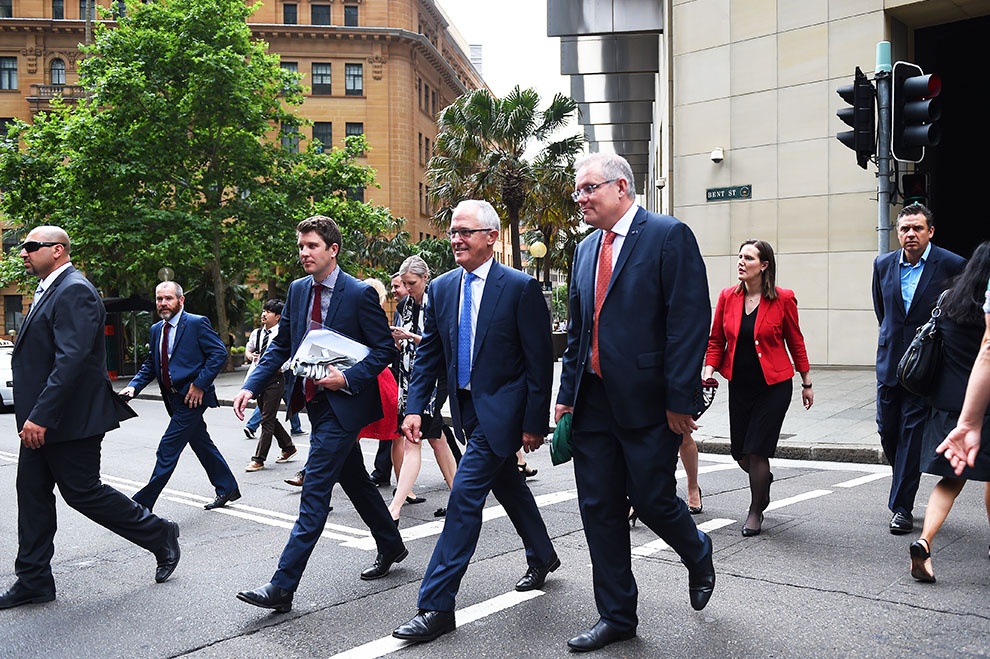Ever since his ascent to the prime ministership, Malcolm Turnbull has represented a puzzle. Is the leadership change, as Tony Abbott and Labor argue, a mere change in symbolism masking a continuation of the substantive policies of his predecessor? Or is he offering something genuinely new?
The release of the PM’s National Innovation and Science Agenda raises this question in a particularly acute form. Turnbull has made this his signature initiative, and has promised a change in direction for the nation. But the statement is, at best, a first step in the direction of a knowledge-based, innovation-oriented society.
In symbolic terms, the contrast with his predecessor could scarcely be sharper. Tony Abbott was, by a wide margin, the most anti-science prime minister in Australian history. While the political requirements of his office imposed some restrictions on what he himself could say, his chosen cheer squad showed no such restraint.
Maurice Newman, his business adviser, claimed that the scientific community was engaged in a UN-backed conspiracy to achieve world domination. Nick Minchin, who helped organise Abbott’s coup against Turnbull, has expressed similar views.
Media supporters like Andrew Bolt and Miranda Devine have taken these conspiracy theories to their logical conclusion, attacking scientists and science in general. For Bolt, the “common sense of the layman” (that is, Bolt and his middle-aged male readers) is the touchstone against which the feeble efforts of entire scientific disciplines must be judged.
Miranda Devine is even more explicit in her hostility to scientists. ‘‘Environmentalism is the powerful new secular religion and politically correct scientists are its high priests…” she writes. “It used to be men in purple robes who controlled us. Soon it will be men in white lab coats. The geeks shall inherit the earth.”
Abbott’s policies, beginning with his decision to scrap the position of science minister, reflected these views. His government cut funding for CSIRO and, of course, for everything connected with climate change, while providing lavish funding to address superstitious fears about the supposed health risks of wind farms, appointing a part-time commissioner on a $600,000 contract to investigate.
Turnbull has dropped Abbott’s anti-science rhetoric and dispensed with the services of Maurice Newman. He has also reversed many, though not all, of Abbott’s most egregious culture war policies.
The innovation announcement takes this process a step further. The cuts to CSIRO have been reversed, and the threat of a cut in university research funding withdrawn. These steps have been accompanied by a set of smaller initiatives, ranging from tax concessions for innovative small business to the promotion of science and maths in schools. The total cost of the package is estimated to be around $250 million a year (or, in the form governments invariably announce such measures, $1 billion over four years).
To be sure, this is more than symbolism. But the real test is still to come. Abbott’s explicit attacks on science might have attracted plenty of pushback, but they served to give cover to measures with much larger implications for our prospects of becoming a genuinely innovative and ideas-oriented country.
Innovation starts with education and knowledge, and education starts in school. The Gonski funding measures, introduced late in Labor’s last term, finally provided a policy framework based on the actual needs of school students rather than the historical outcomes of decades-old debates about state aid to private schools.
Yet Wayne Swan’s deficit obsession led to the absurd decision to fund the Gonski measures by cutting university funding. This silliness has rightly been repudiated by Labor in opposition. Meanwhile, Abbott and Joe Hockey sought to pocket the university cuts while welshing on the Gonski promises.
In opposition, Abbott promised to match Labor’s commitment, claiming that there was not a “cigarette paper’s” distance between the two parties on education. Labor’s policy included six years of guaranteed funding, with the implication of a continued requirement for higher school spending into the future. Once in government, Abbott announced that his commitment was only good for four years, a period that is about to end.
Turnbull has to decide whether to deliver on the promise broken by his predecessor. That will cost the budget $3.8 billion in the first instance, with more to come.
Such a step would cause huge difficulties for treasurer Scott Morrison, who continues to insist that Australia has an expenditure problem, not a revenue problem. Morrison has acquiesced in the innovation agenda on the basis that the cost will be offset by cuts to be announced in the future.
The reality, though, is that if we are to be a successful and innovative country, we need to spend more on education at all levels, as well as on research. Sooner or later, that means a need for more revenue, not less. •




